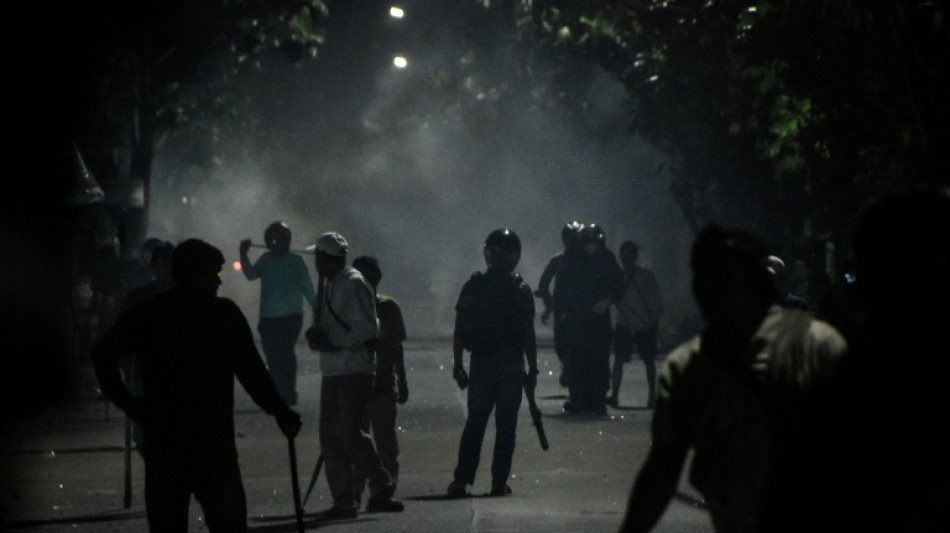
Indonesia capital on edge as army appears after deadly protests

As soldiers crisscrossed the Indonesian capital Jakarta on Monday in a highly unusual scene ahead of more protests over lavish perks for lawmakers, many residents were staying clear.
In Glodok, known as Jakarta's Chinatown, Putri Amelia was pouring coffee for the few customers who came to her shop, but closing her doors early to not be caught in any unrest.
"I'm a bit scared, because I'm a woman and I'm afraid if I come home in the night there will be a riot," the 21-year-old told AFP.
"There is still the feeling of insecurity because there are a lot of rumours about shops being looted."
The megalopolis' usually traffic-jammed roads were relatively quiet for once on Monday -- a reminder that many in the city do not want to get caught in more deadly unrest after the death of 21-year-old delivery driver Affan Kurniawan last week.
His death sparked chaotic scenes outside police headquarters across the capital on Friday, with protesters throwing firecrackers, rocks and Molotov cocktails as police fired tear gas.
Protests continued around the country on Monday.
Putri said business had been "really quiet" in recent days as locals stayed inside amid reports of riots and looting.
It had knocked her usual weekend revenue from six million rupiah ($365) down to a quarter of that.
Most other businesses in the mall were shut, with only a handful of stores selling medicine, glasses and clothing remaining open.
President Prabowo Subianto has accused the protests of brushing with terror and treason, and on Monday said rallies should not continue past sundown.
In neighbouring satellite city Tangerang, some residents have agreed to take part in community patrols to protect their residences because of heightened security fears.
- Looting legacy -
The Chinatown area is synonymous with Jakarta's tumultuous history.
It was the heartbeat of riots in 1998 in unrest before the fall of dictator Suharto, under whom current President Prabowo Subianto once served as a commander.
Ethnic Chinese Indonesians bore the brunt of the bloodshed during the riots, when rape squads -- purportedly led by army thugs -- roamed Jakarta's streets.
Hundreds of Chinese-owned homes and businesses were looted and razed during the unrest, which unfolded under the noses of the security forces.
Some buildings in the district remain damaged even decades later.
Now the target of protests is the country's parliamentarians and police accused of fatally running over the young delivery driver, but anxiety among the minority remains.
Several Chinese Indonesian shopkeepers declined to speak to AFP about the protests and their fears.
Other shopkeepers like Asep Abdurahman had to keep their business alive, even if it meant short opening hours.
"If it's not open, there is no income," the 32-year-old seller of electronics told AFP.
The protests forced the president to announce Sunday that parliament leaders agreed to revoke several policies including some allowances that were one of the key grievances of protesters.
But protests carried on around the country on Monday, with clashes reported in several cities outside Jakarta.
Asep said he hoped Indonesian politicians would listen to their demands to end the chaos.
"It is up to the parliament members right now," he said.
"Do they want to think about the people or not?"
Z.Kaczmarek--GL

 London
London

 Manchester
Manchester
 Glasgow
Glasgow
 Dublin
Dublin
 Belfast
Belfast
 Washington
Washington
 Denver
Denver
 Atlanta
Atlanta
 Dallas
Dallas
 Houston Texas
Houston Texas
 New Orleans
New Orleans
 El Paso
El Paso
 Phoenix
Phoenix
 Los Angeles
Los Angeles



